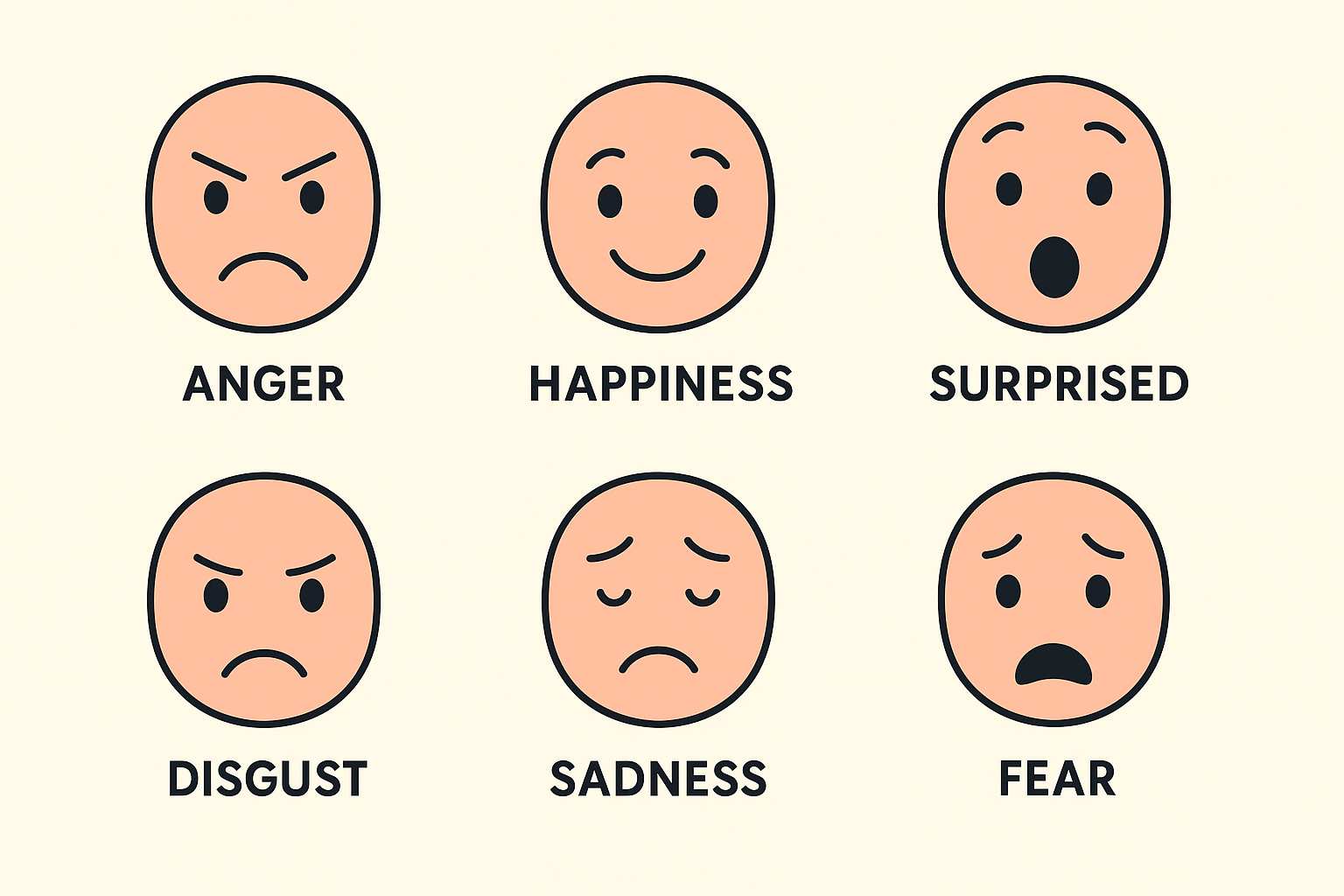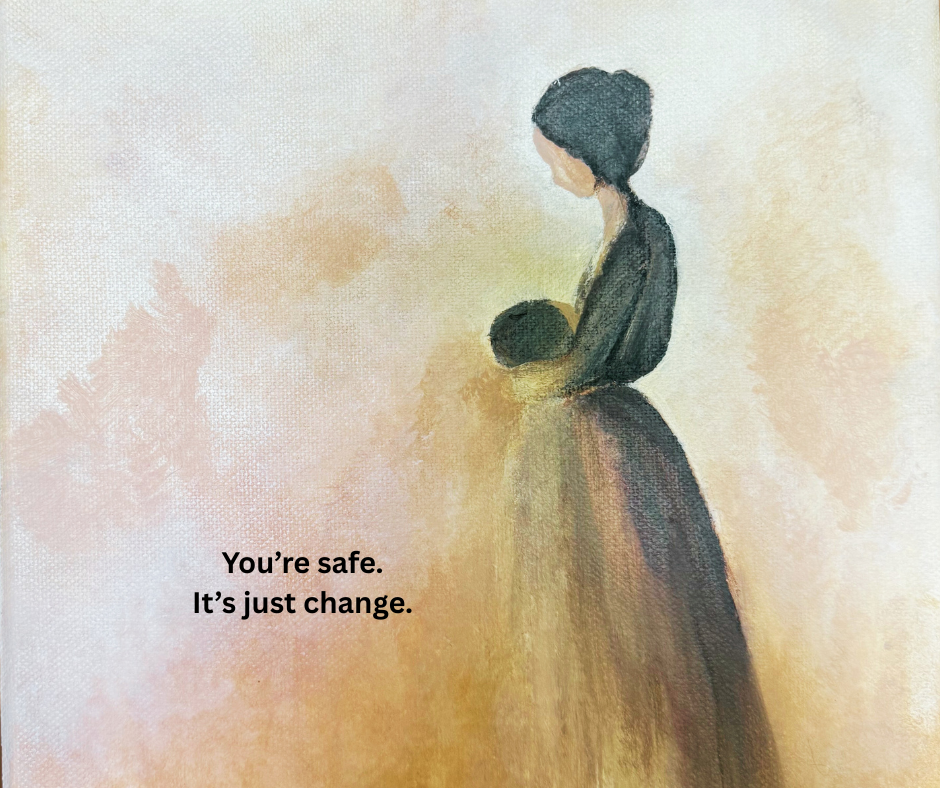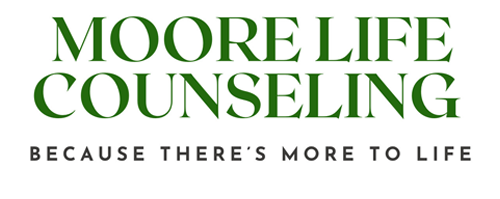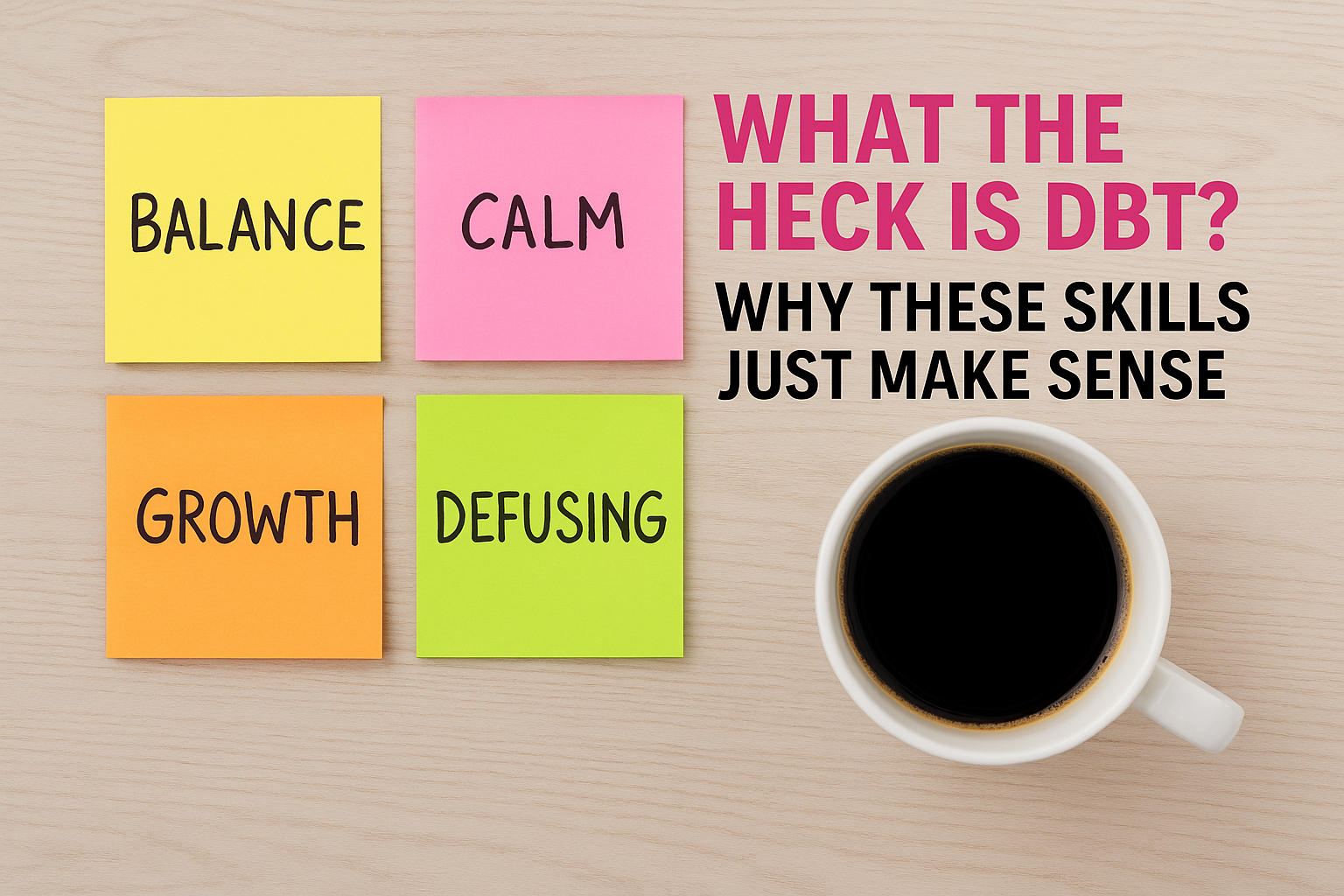Building Mindfulness Skills Through DBT
The Foundation of DBT Skills
The foundation of Dialectical Behavior Therapy (DBT): Mindfulness. Mindfulness skills help us slow down, notice what’s happening in the present moment, and respond with clarity instead of reacting automatically.
🌿 Wise Mind
At the heart of DBT mindfulness is Wise Mind—the balance between Emotion Mind (where feelings run the show) and Reasonable Mind (where logic takes over). Wise Mind integrates both, guiding us toward choices that honor both facts and feelings.
🎥 Watch: Wise Mind video https://youtu.be/oyTPJA5CTts?si=JAzPTqVQU3T5oC6S
The “What” Skills
These are the core actions of mindfulness—what we actually do to be mindful:
- Observe – Notice what’s happening inside and around you.
- Describe – Put words to your experience.
- Participate – Fully engage in the present moment.
🎥 Watch: “What” Skills video https://youtu.be/JUSaQL1_zXE?si=6bCDxCjm6xNi4fIJ
The “How” Skills
These tell us how to practice mindfulness effectively:
- Nonjudgmentally – Notice without labeling things “good” or “bad.”
- One-Mindfully – Focus on one thing at a time.
- Effectively – Do what works, not what feels “right” in the moment.
🎥 Watch: “How” Skills video https://youtu.be/oYdrMpnE93s?si=Fwv6g8yIudE5APjc
📝 Group Practice
In DBT Skills Training group, we practice mindfulness together through guided exercises and discuss how these skills show up in daily life. Members share successes and challenges while reviewing their DBT diary cards, an important tool for tracking emotions, urges, and skills use throughout the week.
Extra!
If you’d like to go deeper, the DBT and Me Podcast offers helpful episodes to support your practice:
- Wise Mind – Feb 2020
- “What” Mindfulness Skills – Mar 2020
- “How” Mindfulness Skills – Mar 2020
- 7 Key Principles of DBT / Skills Training Assumptions – Episode 72, June 28, 2023
- Biosocial Theory – Episode 78
💡 Final Thought
Mindfulness isn’t about perfection—it’s about practice. Every time you pause to notice your breath, observe your emotions, or engage nonjudgmentally, you’re strengthening a skill that makes life more manageable and meaningful.
Until next time..
Skillfully,
Cheryl






Share On: